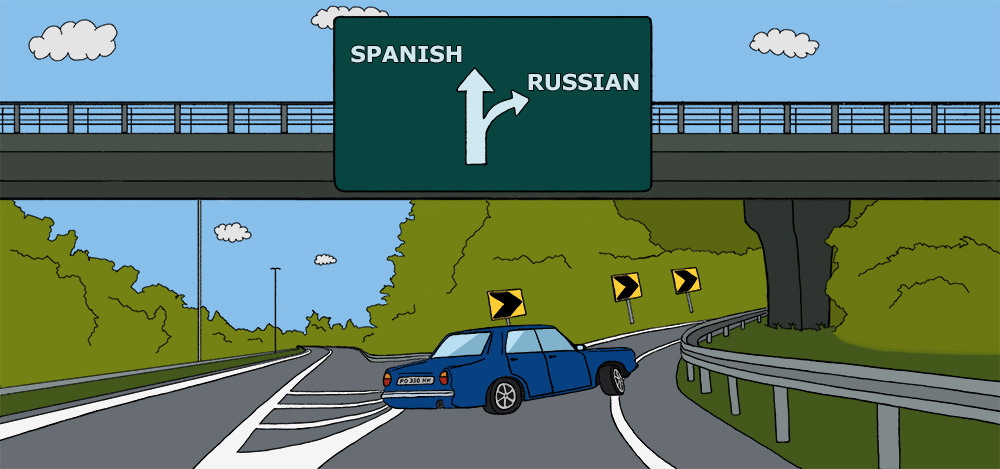'I threw caution (and Spanish) to the wind and went for Russian'

Interviewee: Mike
Experience with Russian: 10 years
What has learning Russian taught you?
Besides the obvious answer of how to speak, read and write Russian, this is actually a difficult question to answer, because since I began learning Russian in 2012, my whole life has, to a certain extent, been experienced through the prism of learning Russian. I have been learning Russian constantly, though at varying levels of intensity, ever since. I currently work as a translator and get to work in Russian every day, which is every little boy’s dream, right? (I actually wanted to be a paleontologist when I grew up, but I think I made the right choice in the end).
One major lesson I learned in Russia was the sense of humility and vulnerability that comes from not knowing a foreign language fluently in a place where that language is what everybody speaks. It’s uncomfortable and imposes on you a sense of inferiority to everyone around you. This, I believe, is something which is always worth taking into consideration in the context of new arrivals to any country, whatever their circumstances may be, and has influenced my thinking on migration and culture shock. I’ve also learned to keep in mind that most people who learn languages do so because they have to, rather than because they enjoy doing so. Having said that, learning Russian has also had the opposite effect, in the sense that it does serve as a source of pride and confidence for me. It’s not an easy language to learn and as I get closer and closer to the coveted level of true fluency, and when I stumble over a phrase I don’t know how to say, I try every now and again to remind myself what an achievement it is to get to the point I have done with it, and also what a privilege it has been to go on this journey.
What do you like or dislike about Russian and why?
I think what I like most about Russian is the pronunciation. It’s just so nice and satisfying to speak, with lots of rolled Rs gliding smoothly through a word before breaking abruptly on a solid K, or a winding word filled with twisty Ye’s and Ya’s taking you on a rollercoaster ride which is brought to a controlled stop by a soft T. When you’re speaking Russian and you really get into the swing of it and all your cases start falling into place and your pronunciation is on point, there really is nothing like it.
What I really don’t like about Russian is the absolute overload of English loan words present in the modern language. At first when I started learning Russian and realised that a few words like такси and телефон had made it across the linguistic divide, I thought “oh, cool, that’ll make learning it a little easier”; however, as the years have gone by, there has been a clear and uncontrolled deluge of borrowed words pouring from West to East that have gotten more and more absurd in their forms (and which are often used differently from their function in English). It has now even gotten to the point where words which already have a different meaning in Russian (дата = date) are casually used to mean what the English equivalent means (data – although the Russian word for “data” is данные). For a whole load of examples of this kind of nonsense, have a look at the Absolute Russian Instagram page, where we collect and shame ridiculous examples of Runglish.
What made you learn Russian?
My first exposure to Russia as anything other than some abstract concept on the news or just another country that wasn’t the one I lived in was when we started studying the Russian Revolution and the Cold War in history at school. I found all of it so fascinating and through that I was introduced to the alphabet and language in photos and posters in textbooks. The alphabet had a special blocky, robust charm and I started trying to learn it to try and work out what some of the writing in the photos said. In one of my earliest attempts to be clever with this, I confidently told my classmates that someone in the picture was holding a placard about God, having transliterated “Год”, which means “year” – so, my first ever Russian translation was a serious mistranslation. When it came time to pick a subject to study at university, I knew I wanted to do languages, as that was all I was good at, but doing French and Spanish seemed a bit… you know, so I threw caution (and Spanish) to the wind and went for Russian. And the rest, fittingly, is history.

